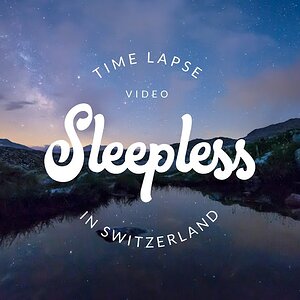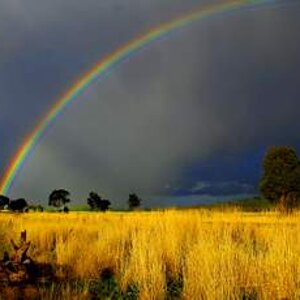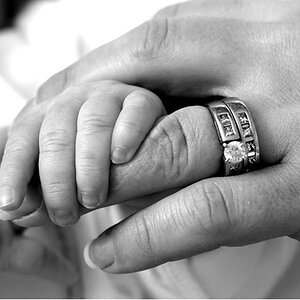- Joined
- Dec 11, 2006
- Messages
- 18,743
- Reaction score
- 8,047
- Location
- Mid-Atlantic US
- Website
- www.lewlortonphoto.com
- Can others edit my Photos
- Photos NOT OK to edit
The Salt of the Earth – a film about Sebastiao Salgado.
This is an interesting film in many ways.
First, clearly, Salgado is a fantastic photographer - and that is the best and only genuine part of this all too hagiographic film. I would have been content to sit for the almost two hours and look at his pictures because the rest of the film and Salgado's talking head narration made me, as a photographer and a busy body, uncomfortable with the number of questions that it raised. This was clearly not meant to be either a biography or a factual narrative about him and his work.
From the very beginning, seemingly without any training, his pictures made an impact and an impression. He progressed from freelance work to Sygma to Gamma to Magnum and was quickly hailed as a significant voice. He has a definite style, strong foreground elements against a meaningful background, often shot from below against an imposing sky full of clouds.
His superlative compositions are supported by stunning lab work and printing and I was quite disappointed not to get any details about how he actually worked and his support structure. (The film also doesn't mention that his wife has a big part in selecting projects and creating books. I guess there was room for only one ego in this film.)
In regards the details of his life, there doesn't seem to be much, if any, information available. Every piece I could find on Salgado gave the same very cursory treatment to his life, the same scant facts that were mentioned in the movie. He studied economics, left Brazil because of the military coup, worked as an economist, gave up economics to shoot pictures and became famous. No learning from mistakes, no developing in closets, no struggling for his art - no anything.
There are general allusions to his having left Brazil because of the military coup; that coup took place in 1964 but he was actually in school and then working as an economist for the government until 1969 – five years later. What caused him to leave the country and not return for 12 years? How did a Brazilian economist end up with a job in the French government?
This seems to be fertile ground for some speculation about what drove Salgado and his social conscience to document the problems of the globe but the details of his life are not to be found anywhere on line.
When there is a mystery, then that mystery usually stirs more curiosity - but the story of a popular icon seems not to attract any attention in this case.
After being exposed to the horrors of yet another catastrophe in Africa, Salgado gave up photography for a while and then was energized to resume with nature as his subject, rather than people. He employed the same very dramatic style that had marked his previous work (although he had switched to digital cameras). (For me, some of the nature images seemed a bit over-worked, even tone-mapped in their attempt to get dramatic foregrounds and heroic skies.)
In an interview printed in the (http://www.nytimes.com/2015/03/22/m...s-a-photographers-life-and-lens-in-focus.html) Wim Wenders, the film-maker, said, “I just wanted to know the man, because he had impressed me for so long.” It was disappointing to me that I really didn't get to know anything about Sebastiao Salgado from the film.
At the end of the film was a long section in which Salgado and his wife described how, with the assistance of lots of workers and donations to his foundation, were restoring a wooded valley as it was originally, before the depredations of lumbering and raising cattle. Salgado gestured to a worn cattle track and talked about how cattle compact the earth and thus any rain just runs off.
In an interview earlier in the film, Salgado's father had talked about how his cattle herds had decreased, in this same valley, because of the lack of water and grazing and, in a touch of supreme irony that had to be unnoticed, said how the wood from all the forests he had harvested had generated enough money to pay for all the Salgado children's education. Salgado talked about how his foundation, with donated funds, was revitalizing this valley without mentioning that it was his own land and that the actions of his own family had been responsible for the destruction.
Every line was scripted and there were several moments that were played to be spontaneous but were clearly not. At every moment I felt that what I was hearing was not the real person of Sebastiao Salgado but the persona of Sebastiao Salgado as created and perpetuated by his work, his fans and the film makers.
If you see this movie, see it for the pictures that are wonderful on a large screen; there is a real story here, but the film doesn't show it.
And surprisingly no review I read mentioned what seems to be the obvious allusion in the title, 'The Salt of the Earth.'
In Portugese, the language of Brazil, salgado means 'salty'.
This is an interesting film in many ways.
First, clearly, Salgado is a fantastic photographer - and that is the best and only genuine part of this all too hagiographic film. I would have been content to sit for the almost two hours and look at his pictures because the rest of the film and Salgado's talking head narration made me, as a photographer and a busy body, uncomfortable with the number of questions that it raised. This was clearly not meant to be either a biography or a factual narrative about him and his work.
From the very beginning, seemingly without any training, his pictures made an impact and an impression. He progressed from freelance work to Sygma to Gamma to Magnum and was quickly hailed as a significant voice. He has a definite style, strong foreground elements against a meaningful background, often shot from below against an imposing sky full of clouds.
His superlative compositions are supported by stunning lab work and printing and I was quite disappointed not to get any details about how he actually worked and his support structure. (The film also doesn't mention that his wife has a big part in selecting projects and creating books. I guess there was room for only one ego in this film.)
In regards the details of his life, there doesn't seem to be much, if any, information available. Every piece I could find on Salgado gave the same very cursory treatment to his life, the same scant facts that were mentioned in the movie. He studied economics, left Brazil because of the military coup, worked as an economist, gave up economics to shoot pictures and became famous. No learning from mistakes, no developing in closets, no struggling for his art - no anything.
There are general allusions to his having left Brazil because of the military coup; that coup took place in 1964 but he was actually in school and then working as an economist for the government until 1969 – five years later. What caused him to leave the country and not return for 12 years? How did a Brazilian economist end up with a job in the French government?
This seems to be fertile ground for some speculation about what drove Salgado and his social conscience to document the problems of the globe but the details of his life are not to be found anywhere on line.
When there is a mystery, then that mystery usually stirs more curiosity - but the story of a popular icon seems not to attract any attention in this case.
After being exposed to the horrors of yet another catastrophe in Africa, Salgado gave up photography for a while and then was energized to resume with nature as his subject, rather than people. He employed the same very dramatic style that had marked his previous work (although he had switched to digital cameras). (For me, some of the nature images seemed a bit over-worked, even tone-mapped in their attempt to get dramatic foregrounds and heroic skies.)
In an interview printed in the (http://www.nytimes.com/2015/03/22/m...s-a-photographers-life-and-lens-in-focus.html) Wim Wenders, the film-maker, said, “I just wanted to know the man, because he had impressed me for so long.” It was disappointing to me that I really didn't get to know anything about Sebastiao Salgado from the film.
At the end of the film was a long section in which Salgado and his wife described how, with the assistance of lots of workers and donations to his foundation, were restoring a wooded valley as it was originally, before the depredations of lumbering and raising cattle. Salgado gestured to a worn cattle track and talked about how cattle compact the earth and thus any rain just runs off.
In an interview earlier in the film, Salgado's father had talked about how his cattle herds had decreased, in this same valley, because of the lack of water and grazing and, in a touch of supreme irony that had to be unnoticed, said how the wood from all the forests he had harvested had generated enough money to pay for all the Salgado children's education. Salgado talked about how his foundation, with donated funds, was revitalizing this valley without mentioning that it was his own land and that the actions of his own family had been responsible for the destruction.
Every line was scripted and there were several moments that were played to be spontaneous but were clearly not. At every moment I felt that what I was hearing was not the real person of Sebastiao Salgado but the persona of Sebastiao Salgado as created and perpetuated by his work, his fans and the film makers.
If you see this movie, see it for the pictures that are wonderful on a large screen; there is a real story here, but the film doesn't show it.
And surprisingly no review I read mentioned what seems to be the obvious allusion in the title, 'The Salt of the Earth.'
In Portugese, the language of Brazil, salgado means 'salty'.






![[No title]](/data/xfmg/thumbnail/41/41795-6bc3a19e590a6be6bd169ab2acaee30d.jpg?1619739896)
![[No title]](/data/xfmg/thumbnail/36/36676-cb11e40ab23f22c2a0af6fbf4ab02371.jpg?1619737676)



